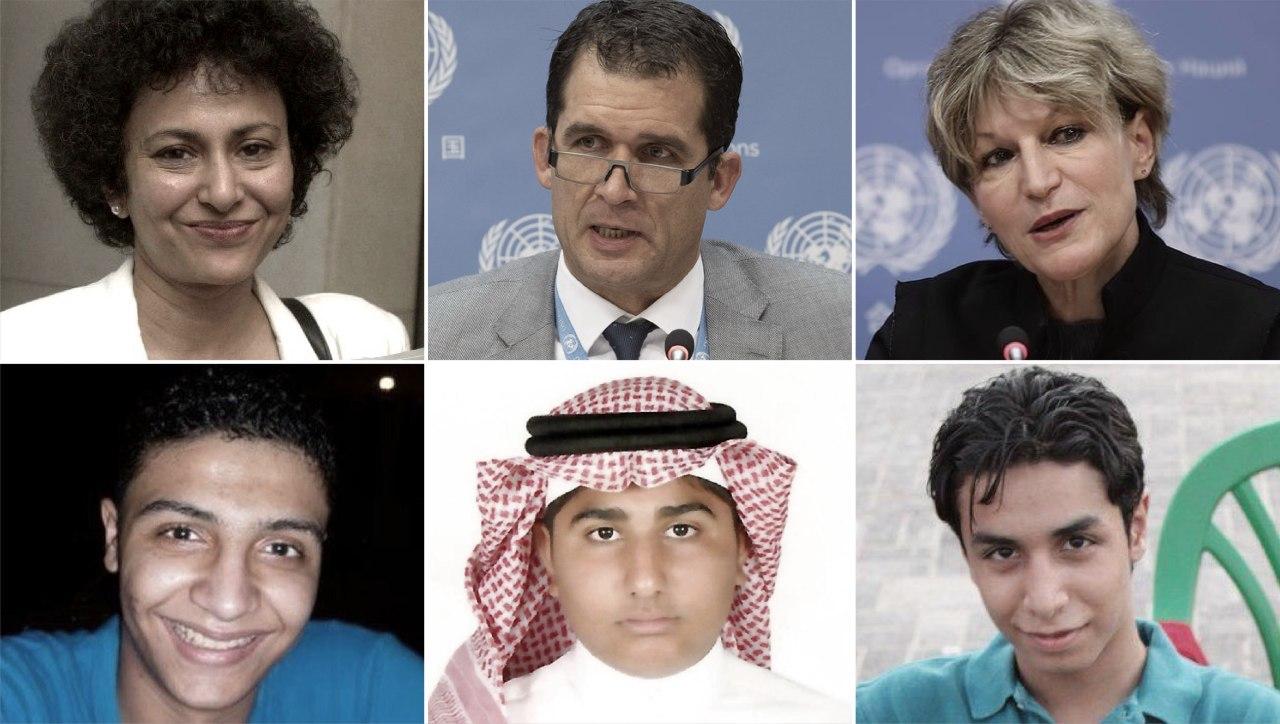
Special rapporteurs from the United Nations raised concerns about the Kingdom of Saudi Arabia’s failure to publish the text of the royal decree that the Human Rights Commission said protects minors from the death penalty. The rapporteurs asserted that this is leading to uncertainty regarding the scope of the decision and whether it contains any exceptions, noting that the 2018 Juvenile Law contains an exception for those accused under the law to combat terrorism and its funding and of crimes punishable under the categories of hudud and qisas.
On 22 May 2020, the Special Rapporteur on extrajudicial executions, the Special Rapporteur on the promotion and protection of the right to freedom of opinion and expression, and the Special Rapporteur on torture and other cruel, inhuman, or degrading treatment or punishment sent a letter to the Saudi government regarding reports of the abolition of the death penalty against minors, as well as Saudi Arabia’s announcement of the abolition of flogging as a punishment.
The rapporteurs’ letter called on Saudi Arabia to release Ali al-Nimr, Dawoud al-Marhoon, and Abdullah al-Zaher, as well as all minors who have been sentenced to death for the legitimate and peaceful exercise of their fundamental rights, including the right to freedom of opinion and expression. The letter noted that many communications have been sent to the Saudi government on these cases.
The rapporteurs pointed out that the Saudi Human Rights Commission recently announced the issuance of a royal decree ending the implementation of the death penalty against individuals convicted of crimes committed when they were minors. The Commission noted that the decree will take effect just after the Saudi government abolished the sentence of flogging as a criminal punishment. According to information received by the rapporteurs, the Commission explained that any person sentenced to death for crimes committed while a minor would not be executed, but would instead be sentenced to prison for no more than 10 years in a juvenile facility. Furthermore, the Commission clarified that the abolition of the death penalty will include those sentenced to death for terrorism-related crimes and will be applied retroactively.
The special rapporteurs went on to say that there are at least 13 people currently facing the death penalty in Saudi Arabia for acts they allegedly committed as minors. These individuals have been prosecuted or are currently being tried in counter-terrorism courts or under the anti-terrorism law or face a qisas or hudud penalty.
The letter pointed out that the death penalty against minors is prohibited in many international laws, including the Convention on the Rights of the Child, which Saudi Arabia ratified in 1996, and the Arab Charter on Human Rights.
The rapporteurs requested that Saudi Arabia implement these measures without delay and seriously consider completely abolishing the death penalty and dropping all forms of corporal punishment. Likewise, they stressed that all cases involving minors and allegations of torture should be thoroughly reviewed and investigated, thus ensuring that those involved in torture crimes are brought to justice and any confessions extracted under torture are thrown out.
Furthermore, the rapporteurs asked the Saudi government to send a copy of the royal decree, amendments to the law, and any legislation codifying the abolition of the death penalty against minors and the penalty of flogging.
Finally, the letter requested detailed information regarding the manner and timing of implementing the announced decision to eliminate the death penalty against minors, and whether the lawyers and families of minors, especially al-Nimr, al-Marhoon, and al-Zaher, have been informed of the decision, or whether they will be released. The rapporteurs called on Saudi Arabia to confirm the number of minors who are currently facing the death penalty for crimes allegedly committed when they were minors and to specify their alleged crimes.
ESOHR welcomes the letter of the special rapporteurs. It believes that their concerns are only confirmed by the Saudi government’s behavior. The Saudi government has failed to clarify the reasoning for its decision, despite the sensitivity of the issues, and merely touts the decree in the media and in diplomatic circles as a reform, without offering reassurance to families who fear for the lives of their relatives.
ESOHR stresses that the methodology followed in Saudi Arabia, especially delaying the implementation of certain decisions and making exceptions in others, highlights the importance of continually holding the Saudi government accountable and of not getting drawn into the political propaganda that is the goal of most official reform announcements.
